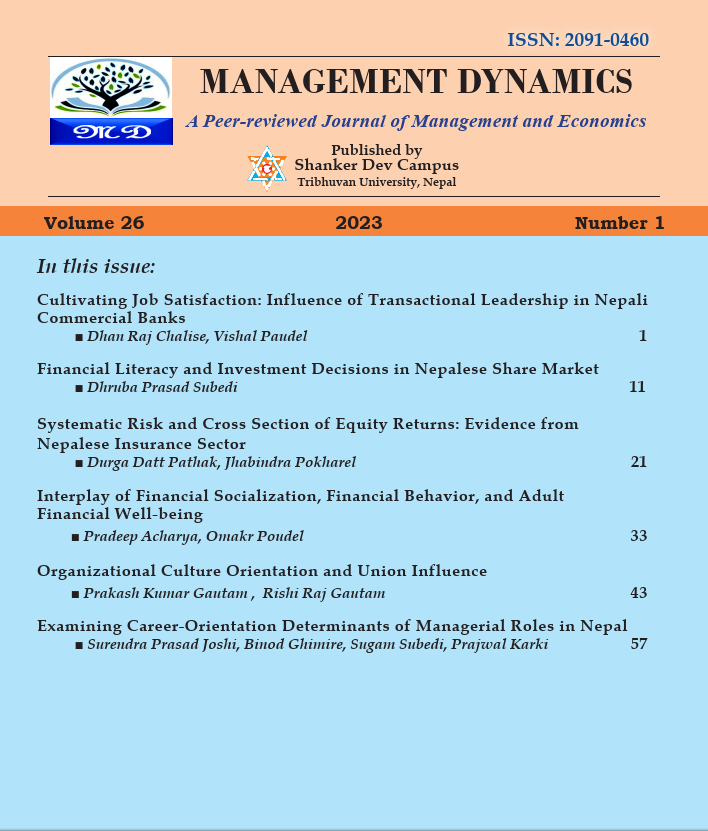Interplay of Financial Socialization, Financial Behavior, and Adult Financial Well-being
DOI:
https://doi.org/10.3126/md.v26i1.59149Keywords:
Financial Behavior, Financial Socialization, Financial well-being, Smart PLS, Young AdultsAbstract
Financial well-being has significantly more importance in life than it used to be a few decades back, as more and more people face financial distress and financial problems. Concerning the importance of financial well-being, this study intends to unearth the impact of financial socialization and behavior on young adults' financial well-being. The study population was young individuals aged 18-29 years, and the responses were collected through an online questionnaire using Google Forms. The study adopted the quantitative approach, for which the data from 391 respondents was collected. Subsequently, the data was analyzed with the help of Smart-PLS, where reliability and validity were established, and the hypothesis and relation were tested through path analysis. The result indicated that financial socialization and financial behavior significantly impact young adults' financial well-being. However, financial behavior's impact was more significant than financial socialization. Thus, to increase the financial well-being of young adults, different educational programs that will positively impact financial socialization and behavior should be implemented, which may lead to financial stability and a strong financial base.
Downloads
Downloads
Published
How to Cite
Issue
Section
License
Copyright © Research Management Cell, Shanker Dev Campus

